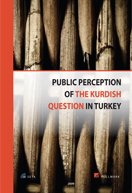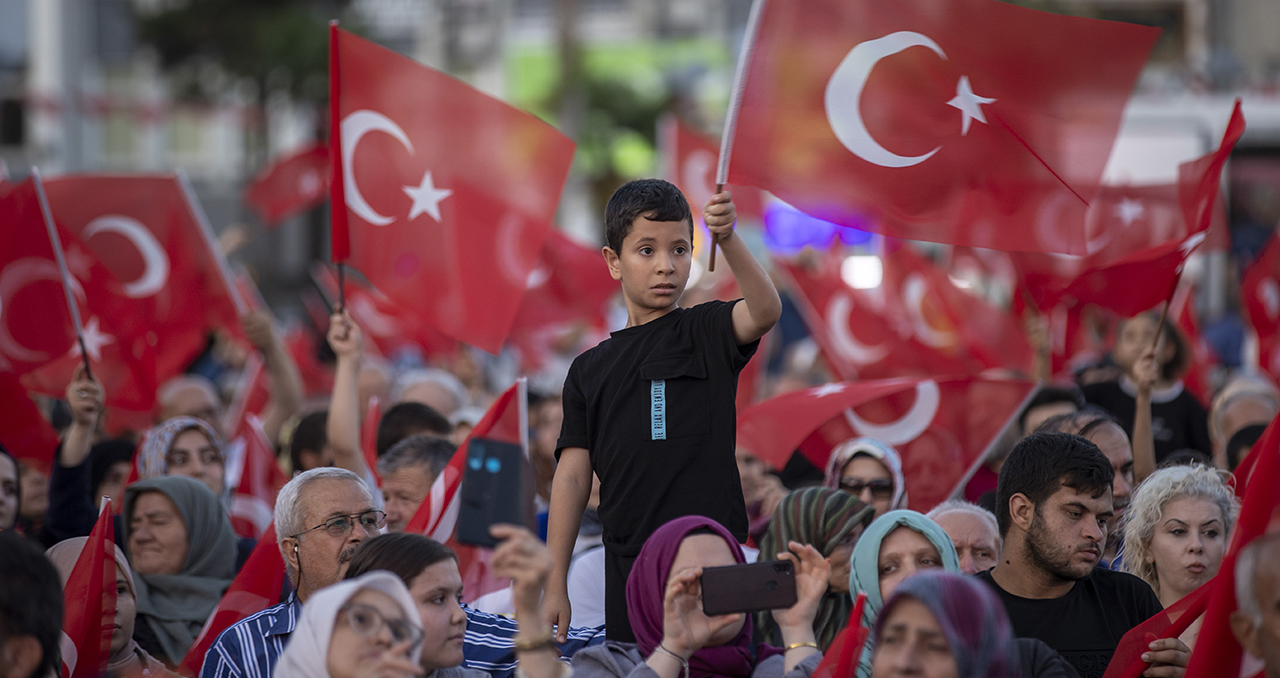The referendum on Oct. 21 was held under the shadow of terrorist attacks. The news of the bombing of a bridge in Daglica, Hakkari and the death of 12 soldiers began to arrive in the early hours of Sunday.
The timing of the terrorist attack seems to be part of a successful media campaign. As people sat in their homes and watched TV, all they did throughout the day was watch the news. The result: spontaneously organized demonstrations in over 30 major cities against the attacks and the Kurdistan Workers' Party (PKK) terrorist organization that was behind them. With public outrage mounting, the government started a diplomatic attack, talking to our allies and neighbors. The visits to and talks with Iraq, Egypt, Syria, Iran, the US and the UK are part of this campaign. The government is wisely trying to conduct the current military operation and diplomatic efforts at a coordinated pace. This is a must if Turkey is to avoid losing legitimacy in the international arena.
The turnout in the Sunday referendum was not as low as some feared. 67.5 percent is above overall European standards. Despite the shadow of the terror attacks, this is a revolutionary change in the history of the modern republic. From now on all presidents in Turkey will be elected through popular vote. A president will be able to run for up to two five-year terms. In addition, parliamentary elections will be held every four years, instead of five.
This could be considered a modest victory for the Justice and Development Party (AK Party) government. Yet there are two important lessons to be learnt from Sunday's voting. The first is the fact that the winner of the referendum is party loyalty. Those who said yes and those who said no said so because their parties told them to vote for or against the referendum. Remember, the Republican People's Party (CHP) boycotted the referendum. So in cities like İzmir, one of the CHP's strongholds, the turnout was under 50 percent. The Nationalist Movement Party (MHP) voted "no" without giving any reasons; the MHP supporters simply followed orders. The AK Party and the Democratic Society Party (DTP) voted "yes" and the result is that the highest turnout, and "yes" votes, was in the Kurdish areas.
Party loyalty always wins in elections and referenda. When asked why they voted "no," many said they did not have any clear reason. Well, the reason is obvious: the party for which they voted in the July 22 elections told them to vote "no" because they considered this referendum to be an AK Party referendum. Otherwise no sensible person would say no when asked if he or she would like to elect the next president.
This is the second lesson: if the government keeps giving the impression that this is the AK Party's referendum, national consensus will never be achieved. The referendum is in the past now, but the same danger awaits the constitutional debate. So far, the perception is that the new draft constitution is that of the AK Party. It was proposed by them, commissioned by them, presented by them, etc. If the debate about the new constitution continues in the way it has been conducted since the July 22 elections, the government will have a hard time convincing other parties and the Turkish people that this is not the AK Party's constitution, but instead a constitution for all of Turkey.
There is a further danger in letting party loyalties dominate national debates. Any major critical issue in Turkey is likely to be the subject of a referendum in the near future. Prime Minister Recep Tayyip Erdoğan already indicated that there will likely be more referenda to establish national consensus on critical issues, which may include the headscarf ban, the Kurdish issue and Article 301. If we are going to decide on issues through referenda more frequently, the government must find a way to help people embrace the idea of reaching national consensus through referenda. Otherwise party loyalties will hijack all future debates and referenda in Turkey.
<a rel="nofollow" href="









